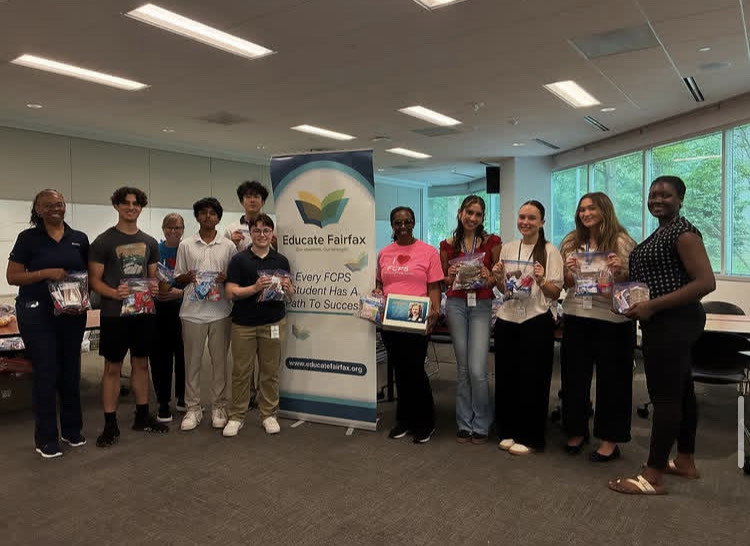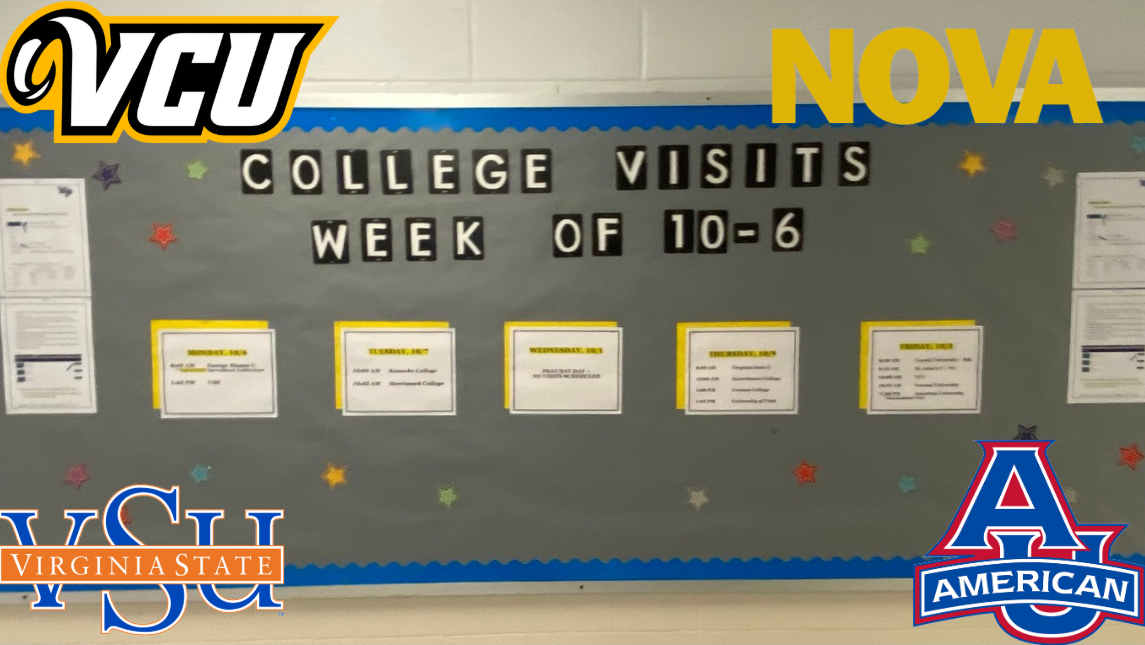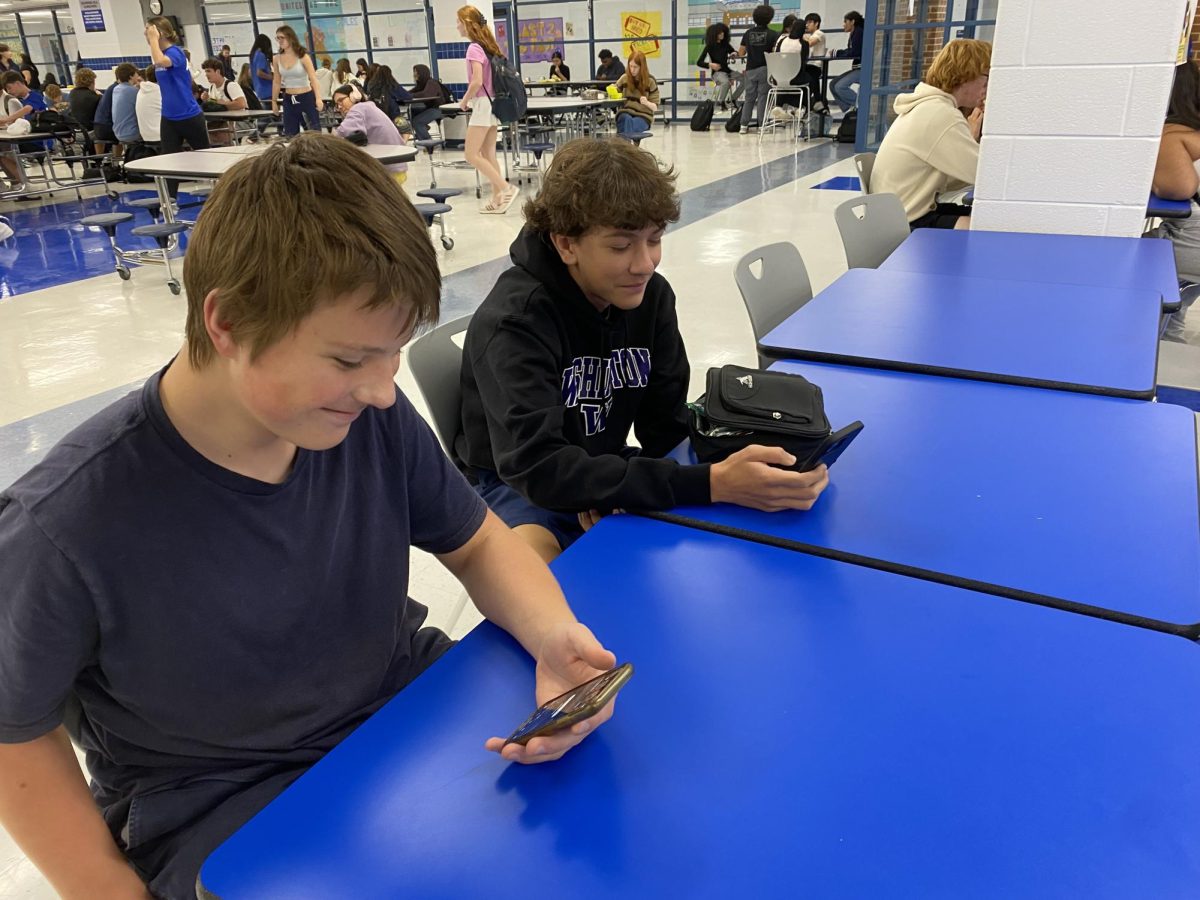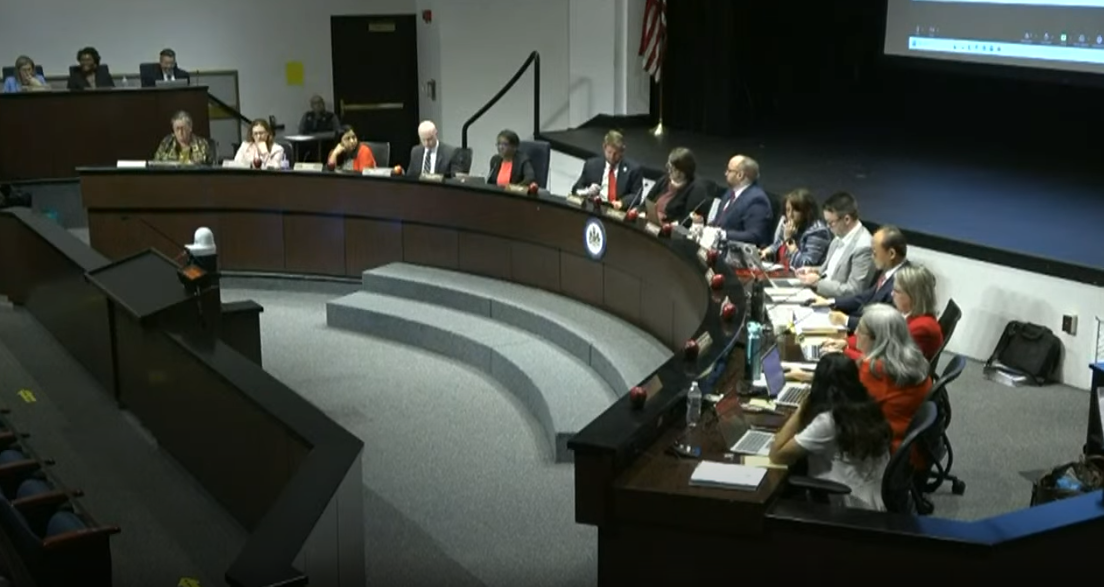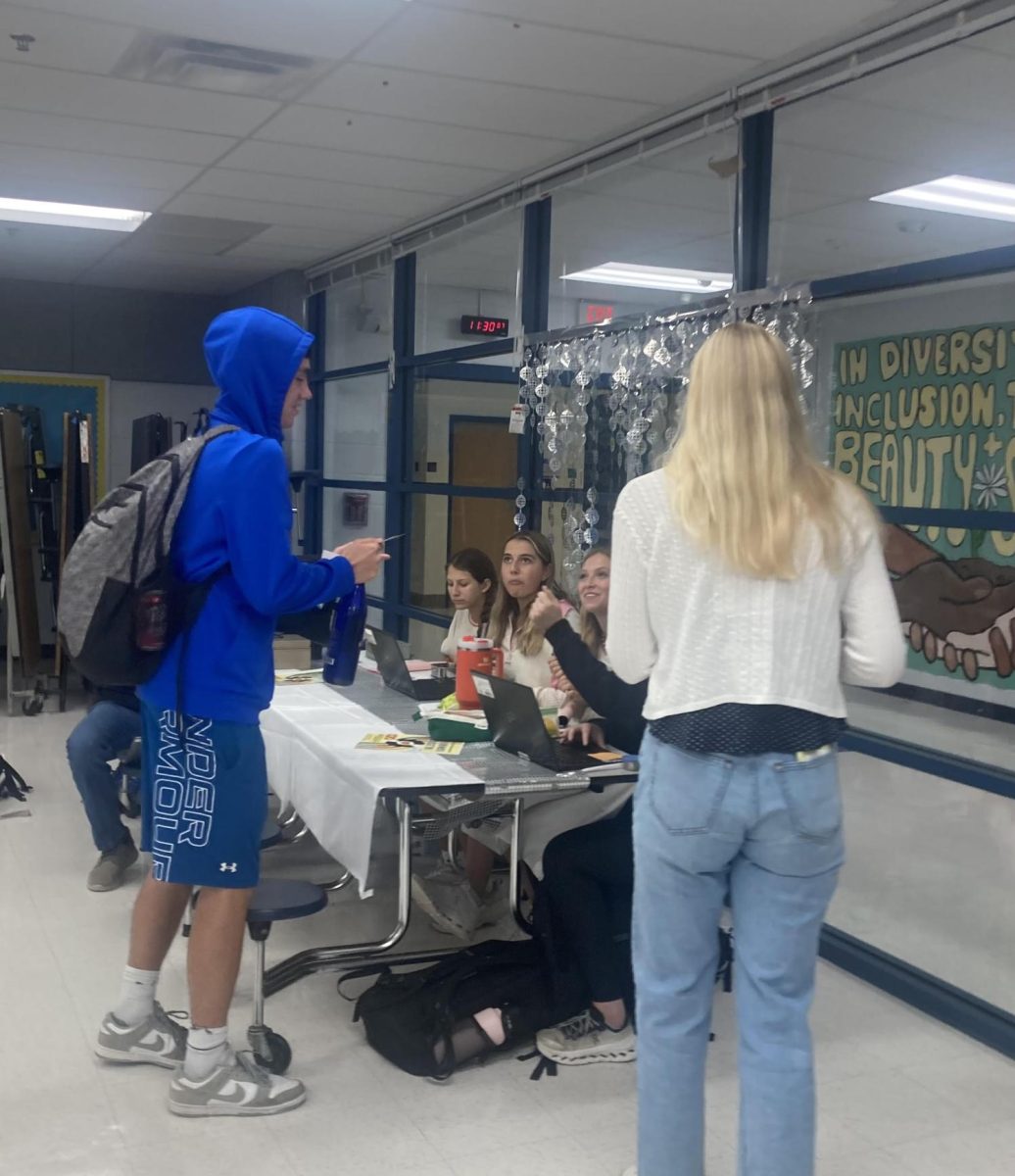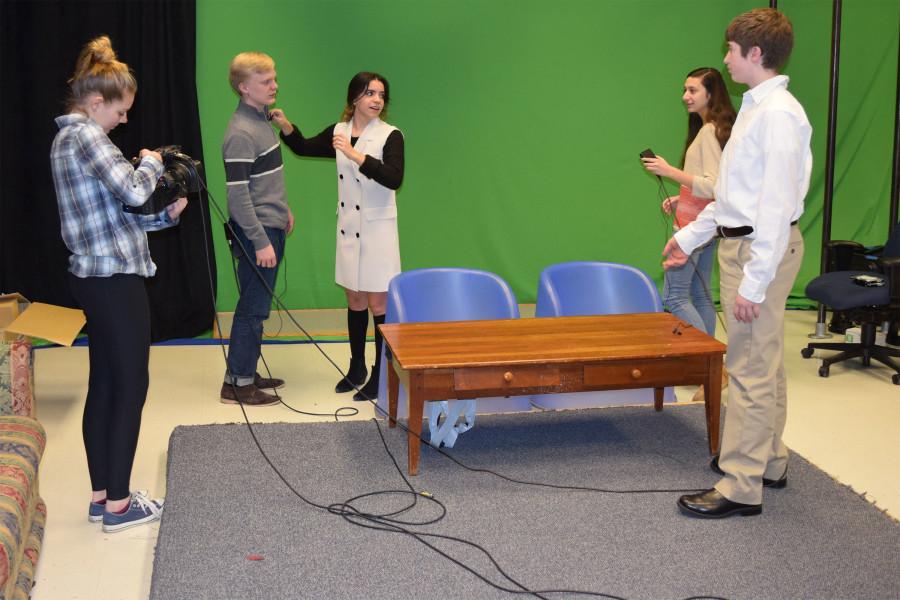Giving Students a Head-Start on Life: The WPHS Academy
Classes like TV Production teach students valuable skills.
Feb 10, 2015
If you were to ask most students what they want out of life, many would say that they would like to have financial stability and a job they enjoy. However, achieving these goals is far easier said than done. To help students reach these goals, the West Potomac Academy is available to students who want to start gaining experience in their respective careers earlier than most.
The Academy essentially exists as a way for students to learn the ins-and-outs of their chosen career from people who have worked in said career. The classes offered at the West Potomac Academy include, but are not limited to, Professional Television Production, Fashion Design, Criminal Justice, and Dance. By offering a more specific selection of courses, students are given the opportunity to obtain a head start in the career of their choice.
Regardless of what career a student chooses, the Academy attempts to teach teens the skills that will allow them to get and keep a job, regardless of what field they ultimately wind up in.
“We push a lot of ‘soft skills’ here. Soft skills are the things that get you the job, and then the things that keep you employed,” said Nancy Mantelli, Professional Television Production teacher at the West Potomac Academy.
Mantelli elaborated, saying “However, not everybody that takes my class is going to go into the production world. But what they are going to do is they’re going to leave with the skill set, so that they can work in any field.”
While it may not be the most talked-about institution in the school, the Academy has attracted a significant number of students. One reason for this may be the decreased emphasis on standardized testing.
Talking about how the Academy appeals to students, Mantelli said “Because the emphasis is more on teaching skill sets, there is less of an emphasis on test taking, on written test taking, and while we all have a standardized test at the end of the year, the test tends to be a lot more practical.”
One example of an Academy class that works to teach students career-based skills as well as skills in a specified field is Professional Television Production. If you’ve ever seen the school news on Friday, then you’ve seen the product of the school news variant of the TV Production program.
As with many Academy classes, the skills students learn in TV Production can sometimes be transferred over to a similar but distinct profession from the one being focused on in the class.
Senior Josh Shelton said “I’m more interested in the Journalism aspect of it, the broadcast journalism part. Being able to be in front of the camera, as opposed to behind it, is kind of where my vision is for my future.”
Shelton also emphasized how “It’s good to learn all the basics of editing, so that you have a better understanding of the intricacies of the different things that are going on while you’re in front [of the camera], so you know what’s happening behind the camera.”
Shelton also talked about how he first became interested in TV Production at a very young age.
“When I was twelve, I took the journalism merit badge through Boy Scouts, and that’s how I got interested, originally, in journalism itself. My dad is good friends with Bob Carpenter, who does the play-by-play for the Washington Nationals, and I went up into the booth, and that’s where I was like ‘this is what I want to do. I want to be up here, calling the game and watching it, and then be in front of the camera.'”
Regardless of careers and the need to prepare for them, Shelton also emphasized how he has grown as a student and as a person through TV Production.
“TV Production itself has taught me things like time management, and working on a hard deadline. That’s a big part of the business…based on people I’ve talked to already in [the TV Production business], is working on a hard deadline, and that if you don’t make that deadline, your segment doesn’t air.”
Shelton discussed some of the issues that have arisen with regard to creating the best possible school news segments.
“[The TV Production studio] was supposed to be operational about two months ago, when the county was supposed to come in and take all the stuff that we inventoried and put it and set it up so we can have a studio and do live stuff for film things in here.”
Regarding the current state of affairs in producing the school news, Shelton elaborated, saying that although the TV Production class is working “without an operational studio.”
Despite this, Shelton expressed optimism about the ability of the TV Production students to respond and work together accordingly, saying that “it’s been a little bit of an adaption process, but everyone here has gotten pretty good at what we’re doing.”
Finally, Shelton reiterated his enthusiasm for TV Production both as a class and as a career.
“Everyone I’ve talked to in the business now says you don’t make a lot of money, but you have a lot of fun doing what you do, and the stories and experiences you have are second to none.”


